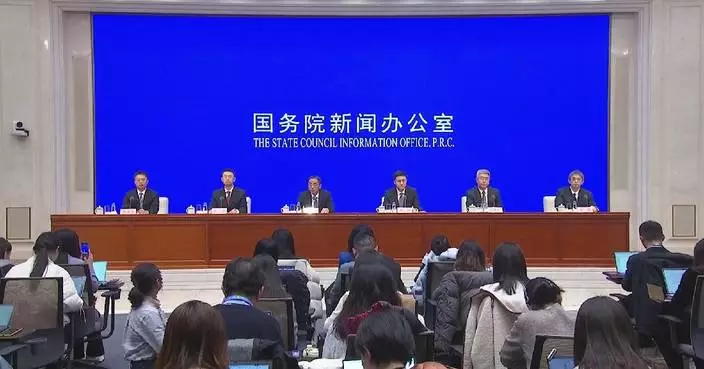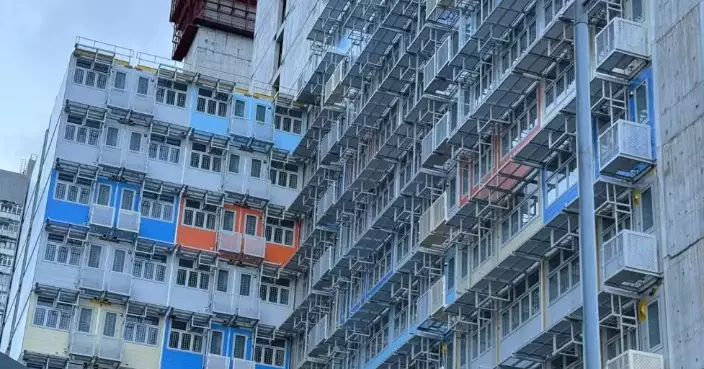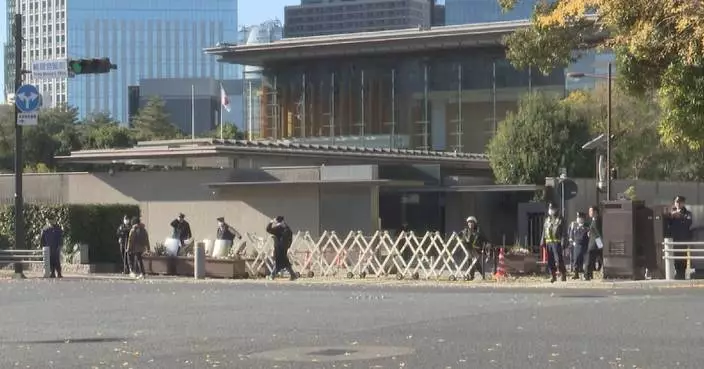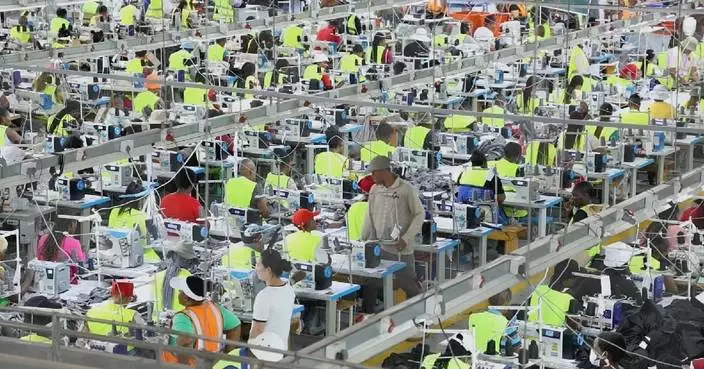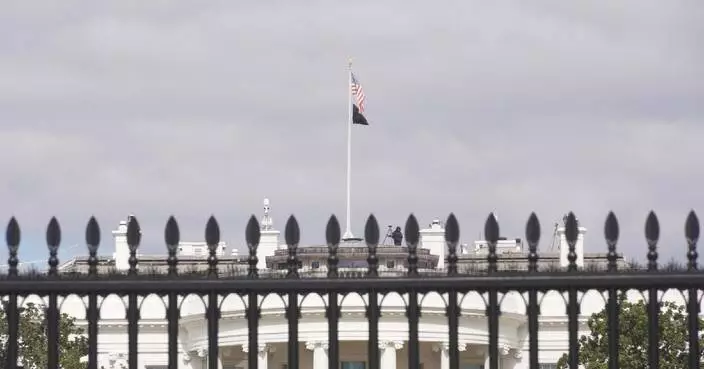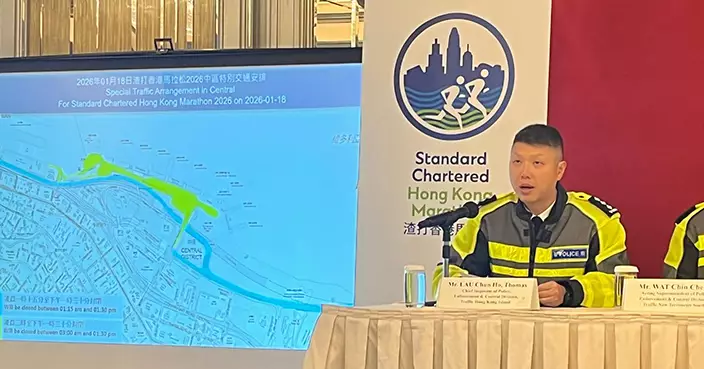Feature · News

Canadian PM's visit to China paves way for more pragmatic trade ties: scholar
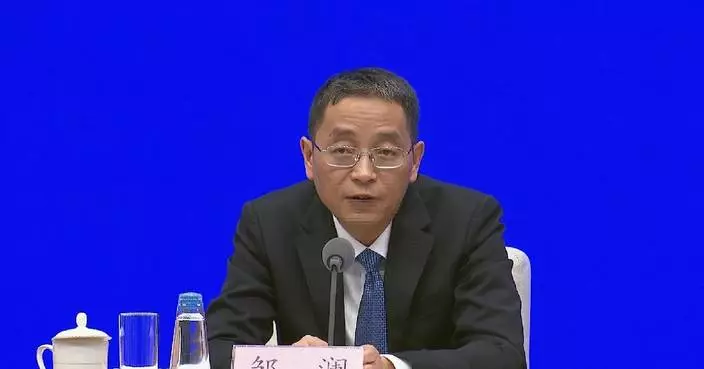
China has no need or intent to use currency depreciation for trade advantage: central bank

Canadian PM arrives in Beijing for official visit

Xi to meet Canadian PM

BMO China president highlights growth opportunities in Canada-China trade
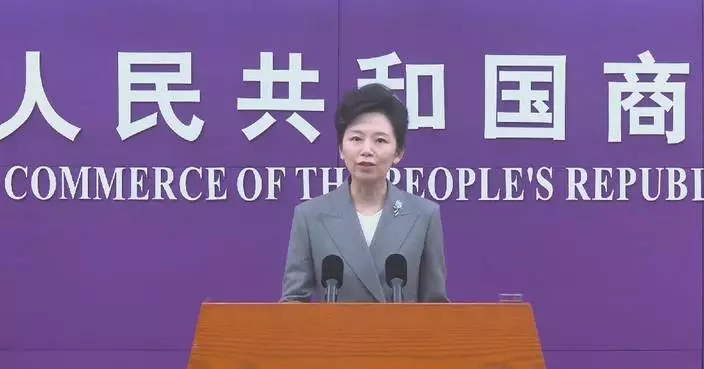
National online shopping event to be launched for Spring Festival

BP China Insight: Japan wants to launch a deep-sea rare earth mining plan. Will it succeed?

BP China Insight: Expert: "De-Sinicization" has turned into "De-Americanization"
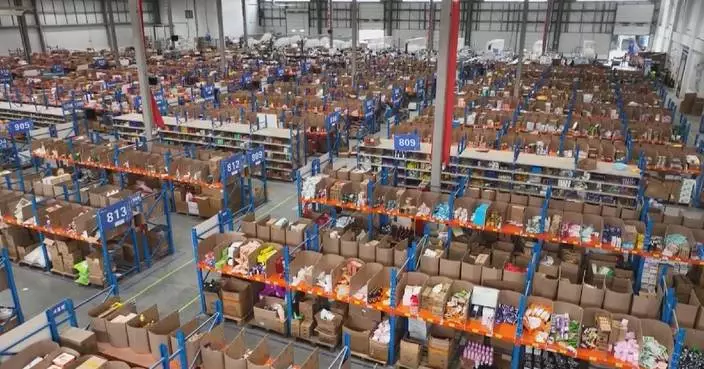
China remains world's largest online retail market for 13th straight year

China's commerce minister outlines plans to boost consumption, trade in 2026

The Chinese New Year Fireworks Display, Solely Sponsored by The Hong Kong Jockey Club, will Shine on the Victoria Harbour on February 18th

Judge orders release of Liberian man arrested in Minneapolis by agents with a battering ram

Clayton Kershaw not quite done pitching, will play for US in World Baseball Classic

Middle East allies in blitz of diplomacy urged Trump to hold off on Iran strikes, diplomat says

Explosion damages homes and injures at least 4 in the Netherlands

Photos of tensions between federal officers and locals in Minneapolis

BP China Insight: Japan wants to launch a deep-sea rare earth mining plan. Will it succeed?

BP China Insight: Expert: "De-Sinicization" has turned into "De-Americanization"
China remains world's largest online retail market for 13th straight year
China's commerce minister outlines plans to boost consumption, trade in 2026
Canadian PM's visit to China paves way for more pragmatic trade ties: scholar
China has no need or intent to use currency depreciation for trade advantage: central bank
Canadian PM arrives in Beijing for official visit
Xi to meet Canadian PM
BMO China president highlights growth opportunities in Canada-China trade
National online shopping event to be launched for Spring Festival

The Chinese New Year Fireworks Display, Solely Sponsored by The Hong Kong Jockey Club, will Shine on the Victoria Harbour on February 18th

Judge orders release of Liberian man arrested in Minneapolis by agents with a battering ram

Clayton Kershaw not quite done pitching, will play for US in World Baseball Classic

Middle East allies in blitz of diplomacy urged Trump to hold off on Iran strikes, diplomat says

Explosion damages homes and injures at least 4 in the Netherlands

Photos of tensions between federal officers and locals in Minneapolis
Feature·Bloggers

【Deep Throat】Trump's Latest Iran Tariff Bluff: China Sees Right Through It

【Ariel】Jimmy Lai’s “Solitary” Twist: Judges Say He Asked For It

【What Say You?】Accomplice Witness Chen Zihao: Family Stalked, Fears Black Bloc Revenge After Release

【Deep Blue】International Laws? You Kidding Me?

【Bastille Commentary】Chicken-hearted Conservatives: Sanctioning Hong Kong Judges While Trump Runs Wild

【What Say You?】Trump’s “Maduro Grab” Gets a Glossy Spin by the Usual Suspects

Ukraine’s battered power grid faces unprecedented challenge, energy minister says
- Legal questions swirl around FDA's new expedited drug program, including who should sign off
- More than 100 dead in torrential rain and floods across southern Africa
- Henderson Brothers Announces Executive Successions, Adds New Employee Shareholders
- Russian court considers central bank's $232B lawsuit against Euroclear over seized assets
- Inside a year of firings that have shaken the Trump Justice Department: 'A great deal of fear'
- Prayer leader in Iran and the faithful call for executions over protests, a red line for Trump
- A South Korean court sentences Yoon to 5 years in prison on charges related to martial law decree
- AST SpaceMobile Awarded Prime Contract Position on U.S. Missile Defense Agency SHIELD Program
- ImmunityBio Announces Durable Complete Response of 15 Months with a Chemotherapy-Free CD19 CAR-NK Cell Therapy in Waldenstrom Lymphoma
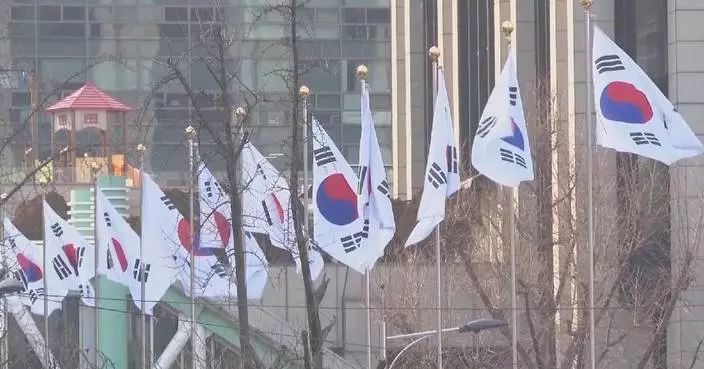
ROK ex-president Yoon sentenced to 5 years in prison on arrest obstruction charges
- Chinese stock markets edge lower Friday amid absence of major market-moving catalysts: analyst
- China launches coking coal options
- Hong Kong stocks close lower
- Returned Shenzhou-20 astronauts meet press
- China to further promote innovative strategic partnership with Switzerland for more outcomes: spokesman
- China to promote innovative development of foreign trade
- China congratulates Uruguay on assuming chairmanship of G77 and China for 2026: FM spokesman
- China warns of "catastrophic disasters" from unchecked Japanese militarist ambitions: spokesman
- Chinese shares close lower Friday

RoboSense Ranked No.1 in Global 3D LiDAR Sales Volume for Robotic Lawn Mowers
- Mantle to Introduce New RWA Trading Capabilities and Sports Fan Economies with Fluxion, VOOI, SCOR in Upcoming Jan Livestream
- Global Economic Cooperation 2026 to Explore New Pathways for Cooperation, Growth and Resilience in a Multipolar World
- Jointly Charging the Road Ahead | Huawei Releases Top 10 Trends of Charging Network Industry 2026
- BingX Becomes Scuderia Ferrari HP's First-Ever Crypto Exchange Partner
- Bybit CEO Ben Zhou to Unveil 2026 Roadmap in Keynote Heralding New Era for Digital Finance
- USI Subsidiary Universal Optoelectronics Acquires Controlling Stake in Eugenlight Technologies, Advancing Optical Interconnect Industry Integration
- Canada agrees to cut tariff on Chinese EVs in return for lower tariffs on Canadian farm products
- Metis "Starry Pro": Achieving Greater Wealth Stability in a Changing Landscape.
- KuCoin Ranks Among Top Three Exchanges by Market Share Growth in TokenInsight's 2025 Annual Report

What you need to know about Grok and the controversies surrounding it
- At Detroit auto show, spotlight dims for EVs
- Kaiser affiliates will pay $556M to settle a lawsuit alleging Medicare fraud
- What to know about UK legal changes aiming to regulate AI-generated nude images
- Ailing astronaut returns to Earth early in NASA's first medical evacuation
- Aimed at the growing number of young Chinese who live alone, a new app asks: ‘Are you dead?'
- Wikipedia unveils new AI licensing deals as it marks 25th birthday
- Grok blocked from undressing images in places where it's illegal, X says
- NASA sends 4 astronauts back to Earth in first medical evacuation
- Public mistrust linked to drop in deceased donor organ donations and kidney transplants

Julio Iglesias denies sexual abuse allegations, calling them 'absolutely untrue'
- Kathleen Kennedy, steward of 'Star Wars,' steps down from Lucasfilm
- Former Universal chair David Linde named CEO of Sundance Institute
- The new BTS album title and what to know about the K-pop band’s comeback
- Min Jin Lee's 'Pachinko' follow-up, 'American Hagwon,' will explore Korean education obsession
- Actor Timothy Busfield ordered held without bond in New Mexico child sex abuse case
- Royal Opera sees generation change as Jakub Hrůša and Speranza Scappucci come in
- Julio Iglesias accused of sexual assault in Caribbean as Spanish prosecutors study the allegations
- Fanatics debuts Fanatics Studios with Olympics, Tom Brady and ESPN at Intuit Dome
- Warm up with creamy rutabaga, parsnip and cheddar soup

Giovanni Franzoni's run in Wengen super-G makes him an Olympics contender for host Italy
- Has figure skating reached the limits of human performance?
- Photos show Ukraine's historic center in ruins but children, athletes still train ahead of Olympics
- John Harbaugh's mentor, Andy Reid, had a better second act than his first
- Madison Keys pictures herself as a champion again at the Australian Open
- At a war-ravaged sports center in Ukraine, the hope for Olympic glory persists
- New Oceania soccer competition has a 2029 Club World Cup spot as the winner's reward
- Warriors coach Steve Kerr chatted with Jonathan Kuminga about his uncertain situation
- Maple Leafs' William Nylander exits game with lower-body injury
- Wembanyama shaves head, shines brightly in leading Spurs past Antetokounmpo, Bucks
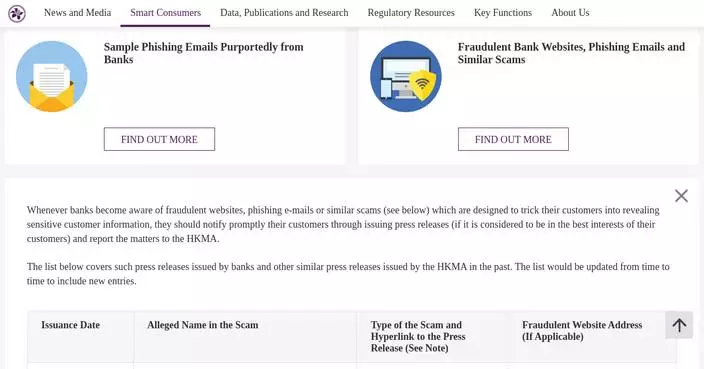
HKMA Warns Public About Recent Banking Scams and Fraudulent Websites
- Two Passengers Imprisoned for Smuggling Duty-Not-Paid Cigarettes at Lo Wu Control Point
- HKFI Cocktail Party 2026: Celebrating Unity and Growth in Hong Kong's Insurance Sector
- Two men sentenced for unauthorized transfer of sports facility bookings, facing 80 hours of community service.
- Labour Department Launches Good Employer Charter 2026 to Promote Work-Life Balance and Family-Friendly Practices.
- New Melioidosis Case in Hong Kong: Public Urged to Maintain Hygiene After Recent Storms
- Hong Kong Launches Port Community System for Smarter, Integrated Maritime Operations
- Government Proposes Bill to Enhance Medical Council's Complaint Handling in Hong Kong
- Sick 70-Year-Old In Custody Dies After Deteriorating Condition in Public Hospital
- Health Authorities Warn of Rising Dengue and Chikungunya Fever Risks Amid Favorable Mosquito Breeding Conditions

Türkiye opposes military operation against Iran, says FM
- AIIB grants 70 bln USD funding in 10 years
- U.S. stocks close higher as chip, financial stocks rally
- Chinese yuan weakens to 7.0078 against USD Friday
- U.S. dollar ticks up
- Crude futures settle lower
- U.S. tariffs plunge Lesotho's textile industry into crisis
- Japanese PM's erroneous remarks on China's Taiwan undermine regional stability
- Palestinian death toll in Gaza rises to 71,439: health authorities
- Russia, Ukraine update battle reports
Category · News

Ukraine’s battered power grid faces unprecedented challenge, energy minister says

Legal questions swirl around FDA's new expedited drug program, including who should sign off
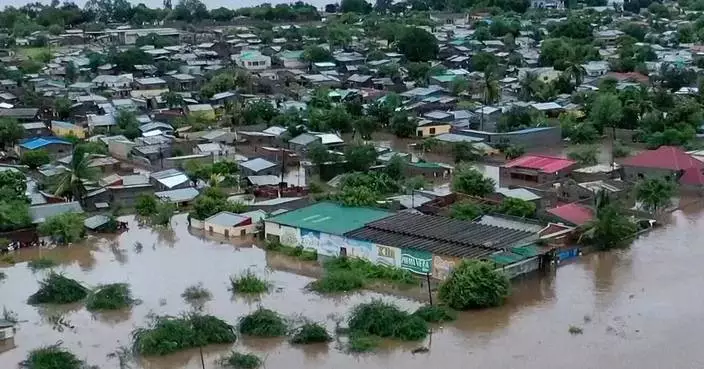
More than 100 dead in torrential rain and floods across southern Africa

Henderson Brothers Announces Executive Successions, Adds New Employee Shareholders

Russian court considers central bank's $232B lawsuit against Euroclear over seized assets

Inside a year of firings that have shaken the Trump Justice Department: 'A great deal of fear'

Giovanni Franzoni's run in Wengen super-G makes him an Olympics contender for host Italy

Has figure skating reached the limits of human performance?

Prayer leader in Iran and the faithful call for executions over protests, a red line for Trump
ROK ex-president Yoon sentenced to 5 years in prison on arrest obstruction charges

RoboSense Ranked No.1 in Global 3D LiDAR Sales Volume for Robotic Lawn Mowers

Mantle to Introduce New RWA Trading Capabilities and Sports Fan Economies with Fluxion, VOOI, SCOR in Upcoming Jan Livestream

A South Korean court sentences Yoon to 5 years in prison on charges related to martial law decree

Global Economic Cooperation 2026 to Explore New Pathways for Cooperation, Growth and Resilience in a Multipolar World

ImmunityBio Announces Durable Complete Response of 15 Months with a Chemotherapy-Free CD19 CAR-NK Cell Therapy in Waldenstrom Lymphoma

AST SpaceMobile Awarded Prime Contract Position on U.S. Missile Defense Agency SHIELD Program

Essential Utilities Elevates Alexis Rodriguez to Vice President of Strategy and Corporate Development

Jointly Charging the Road Ahead | Huawei Releases Top 10 Trends of Charging Network Industry 2026

Fire breaks out in one of Seoul's last-remaining shanty towns

Trump isn't waiting for future generations to name things after him. It's happening now

In their words: Greenlanders talk about Trump's desire to own their Arctic island

BingX Becomes Scuderia Ferrari HP's First-Ever Crypto Exchange Partner

HKMA Warns Public About Recent Banking Scams and Fraudulent Websites

Photos show Ukraine's historic center in ruins but children, athletes still train ahead of Olympics

Bybit CEO Ben Zhou to Unveil 2026 Roadmap in Keynote Heralding New Era for Digital Finance
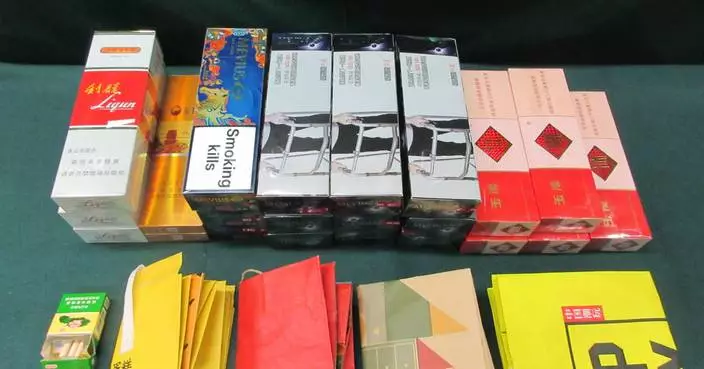
Two Passengers Imprisoned for Smuggling Duty-Not-Paid Cigarettes at Lo Wu Control Point
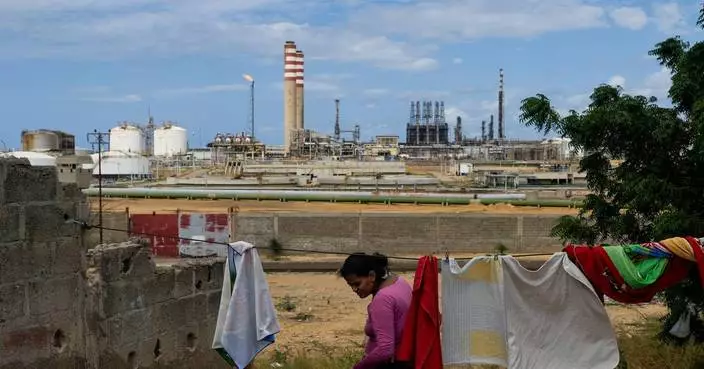
Photos show daily life along Venezuela’s oil coast after Maduro’s capture
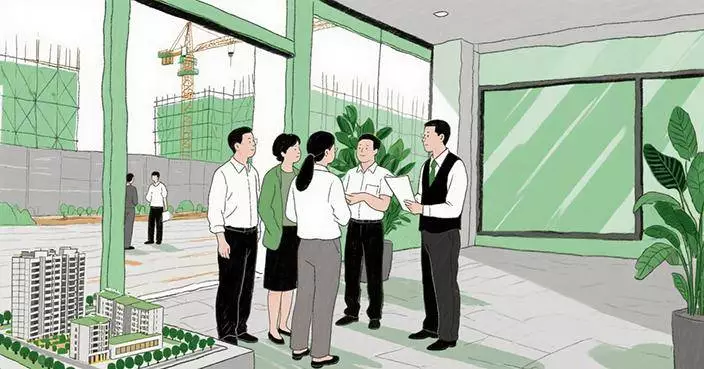
HKFI Cocktail Party 2026: Celebrating Unity and Growth in Hong Kong's Insurance Sector

Maxine Gellens of Berkshire Hathaway HomeServices California Properties Successfully Assists Buyer and Seller of $18 Million La Jolla Estate

Audi Revolut F1 Team Welcomes Nexo as Official Digital Asset Partner

John Harbaugh's mentor, Andy Reid, had a better second act than his first

USI Subsidiary Universal Optoelectronics Acquires Controlling Stake in Eugenlight Technologies, Advancing Optical Interconnect Industry Integration

Canada agrees to cut tariff on Chinese EVs in return for lower tariffs on Canadian farm products

Two men sentenced for unauthorized transfer of sports facility bookings, facing 80 hours of community service.

Labour Department Launches Good Employer Charter 2026 to Promote Work-Life Balance and Family-Friendly Practices.

In Spain, Venezuelan migrants balance hope and fear about their country's future

Metis "Starry Pro": Achieving Greater Wealth Stability in a Changing Landscape.
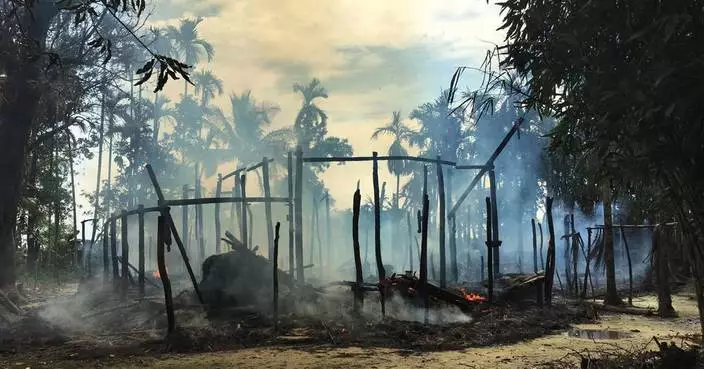
At top UN court, Myanmar denies deadly Rohingya campaign amounts to genocide
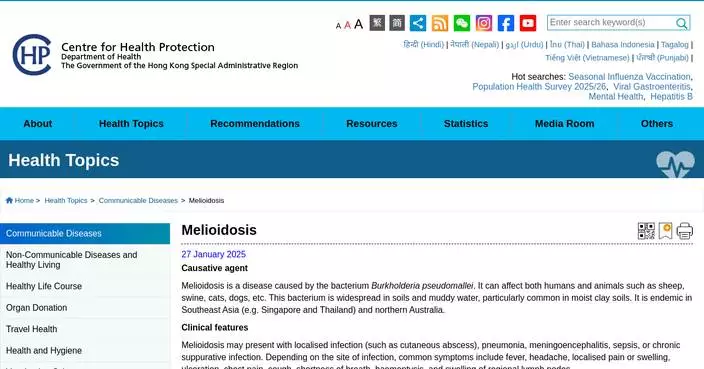
New Melioidosis Case in Hong Kong: Public Urged to Maintain Hygiene After Recent Storms

Julio Iglesias denies sexual abuse allegations, calling them 'absolutely untrue'

Hong Kong Launches Port Community System for Smarter, Integrated Maritime Operations
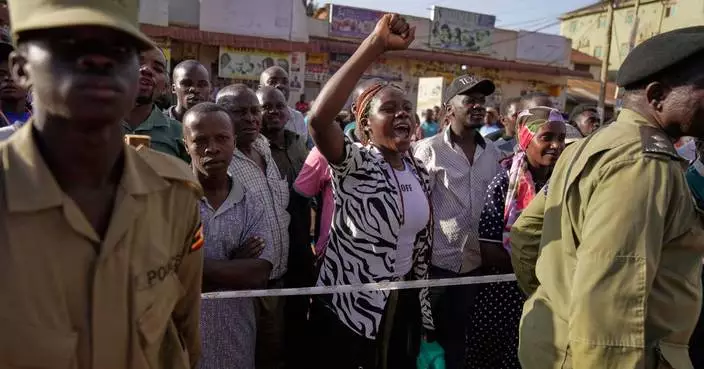
Uganda's president leads in tense election marred by internet shutdown and voting interference

KuCoin Ranks Among Top Three Exchanges by Market Share Growth in TokenInsight's 2025 Annual Report
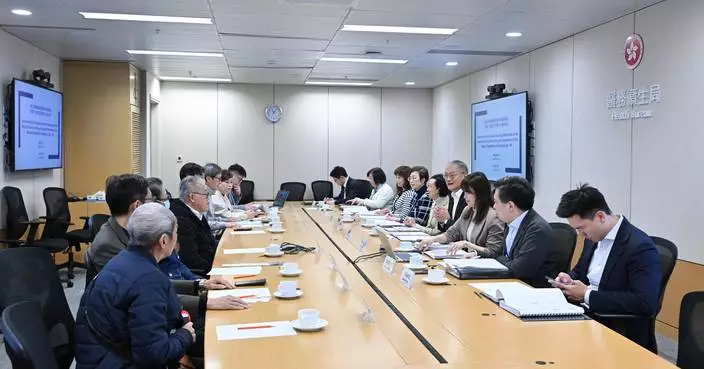
Government Proposes Bill to Enhance Medical Council's Complaint Handling in Hong Kong

Madison Keys pictures herself as a champion again at the Australian Open
Chinese stock markets edge lower Friday amid absence of major market-moving catalysts: analyst

Infinix Wins Multiple "Best of CES 2026" Awards for Satellite Communication and Breakthrough Innovations

Sick 70-Year-Old In Custody Dies After Deteriorating Condition in Public Hospital
China launches coking coal options
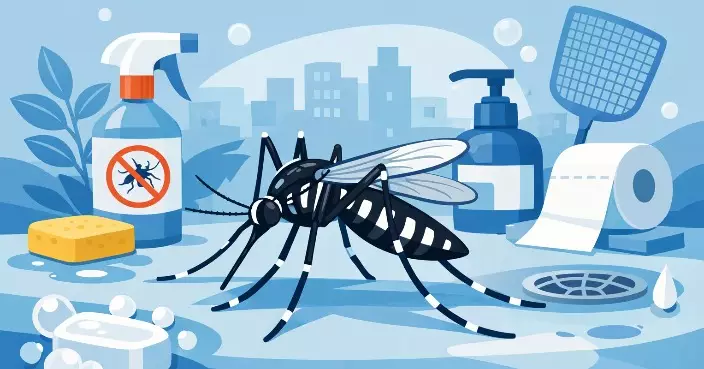
Health Authorities Warn of Rising Dengue and Chikungunya Fever Risks Amid Favorable Mosquito Breeding Conditions
Hong Kong stocks close lower
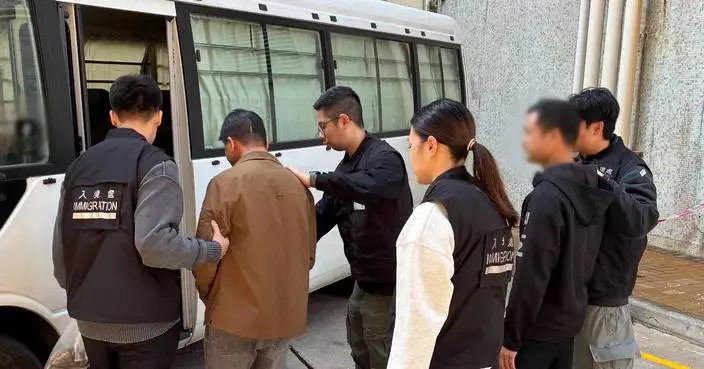
Anti-Illegal Worker Operations in Hong Kong Result in Eight Arrests and Ongoing Investigations

At a war-ravaged sports center in Ukraine, the hope for Olympic glory persists
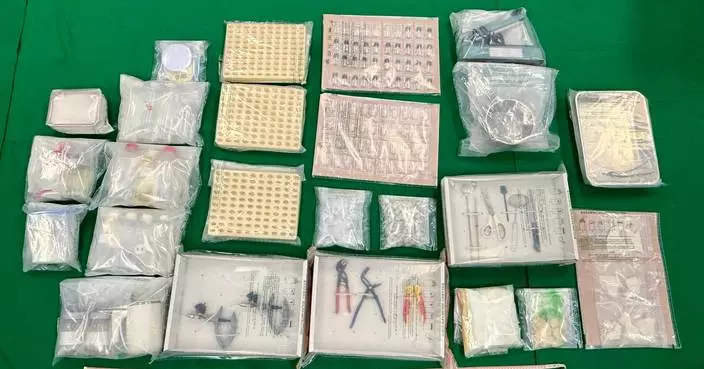
Hong Kong Customs dismantles drug lab, seizes $10 million in etomidate and cocaine, arrests two suspects.

New Oceania soccer competition has a 2029 Club World Cup spot as the winner's reward
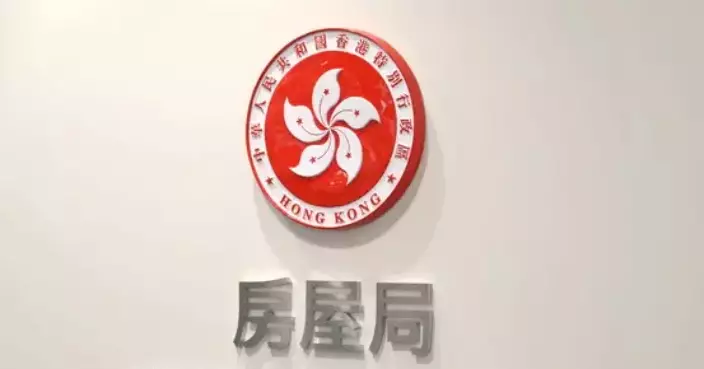
Tender Invited for Light Public Housing Management in Tuen Mun, Encouraging Experienced Organisations to Participate
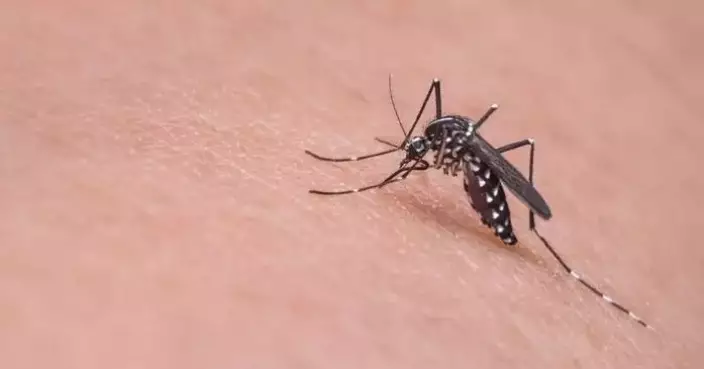
FEHD Reports Low Aedes Albopictus Mosquito Levels in January Gravidtrap Survey
Returned Shenzhou-20 astronauts meet press

VF 8 Is Connecting a New Global VinFast Community
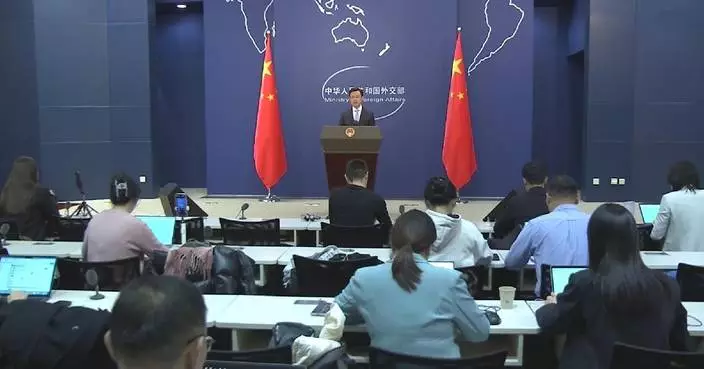
China to further promote innovative strategic partnership with Switzerland for more outcomes: spokesman
China to promote innovative development of foreign trade
Türkiye opposes military operation against Iran, says FM

ONYX Hospitality Group Partners with Yee Fung Group to Launch "Y Hotel Nanshan Shenzhen", Expanding its Portfolio in China
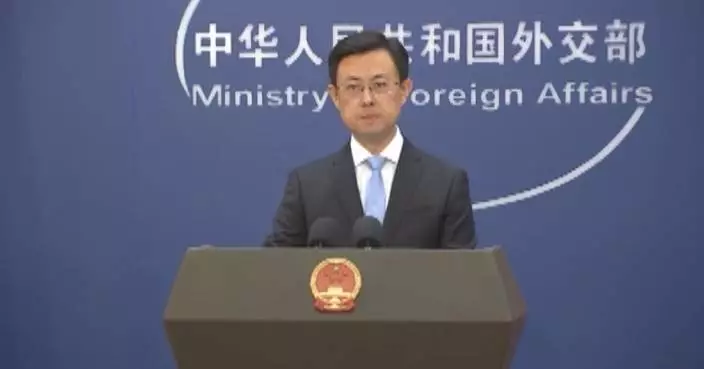
China congratulates Uruguay on assuming chairmanship of G77 and China for 2026: FM spokesman

China warns of "catastrophic disasters" from unchecked Japanese militarist ambitions: spokesman
Chinese shares close lower Friday
China FAST telescope links with test antennas in breakthrough upgrade
AIIB grants 70 bln USD funding in 10 years
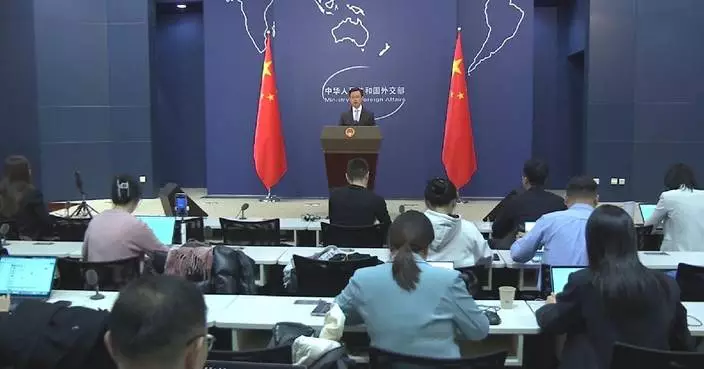
China urges Japan to earnestly abide by one-China principle: FM spokesman
China launches 'TIR Plus' business models to upgrade cross-border logistics

DX GRAVITY Exhibition Fosters Design Networking Across Greater Bay Area
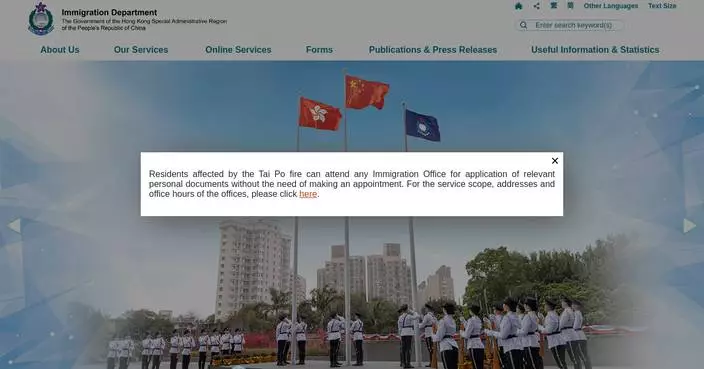
Hong Kong and Macao Relax Immigration Clearance Age and Enrollment Requirements for Faster Services

Hong Kong Awards for Environmental Excellence Recognize 54 Organizations for Contributions to Sustainability in 2024

The 19th Asian Financial Forum will be Held for Two Days Starting from January 26th, with a "Global Industry Summit" Session Newly Added
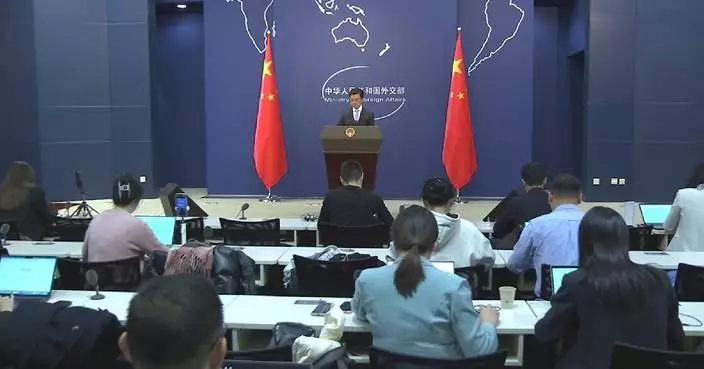
China to inject more positive energy into world economy: spokesman
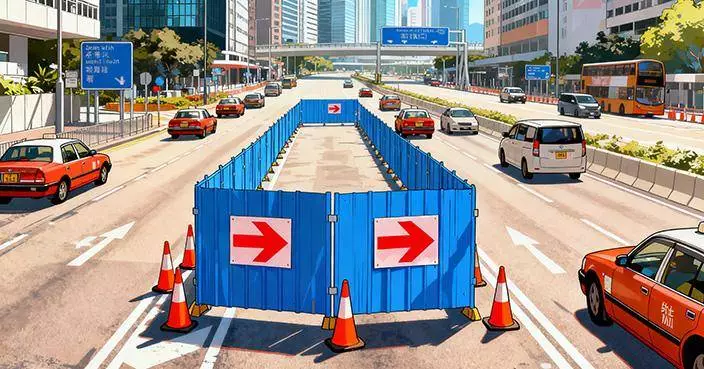
Traffic Changes Announced for Hong Kong Marathon 2026 This Sunday, January 18
China's Xuelong icebreaker leaves New Zealand for Antarctic expedition after replenishment
China reiterates opposition to official engagement with Taiwan region
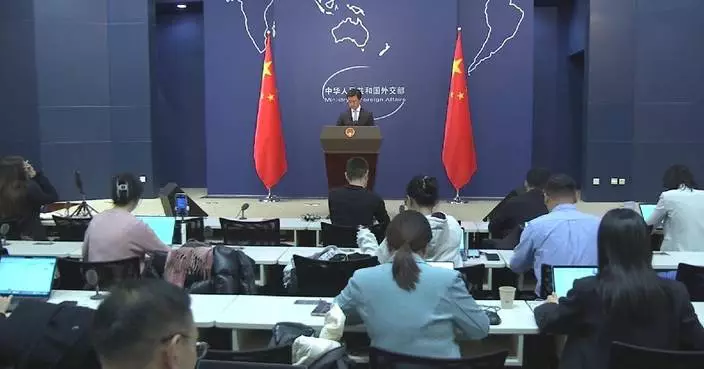
FM spokesman on Japan-Philippine defense pact

Hong Kong Launches New Logistics Initiatives for Sustainable Development and Digital Transformation

UN urges "maximum restraint" on Iran situation

She set a photo afire, lit a cigarette — and became a symbol of resistance for Iran protesters

INCHEON-IFEZ Booth Wraps Up a Successful CES 2026, Recording $560M in Export Consultations and 17 Innovation Awards
Cuba receives remains of 32 soldiers from U.S. Venezuela conflict




